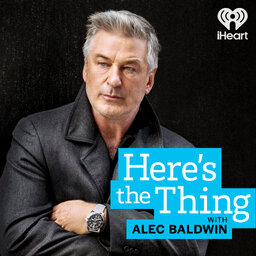Rosie O'Donnell
This week, Alec sits down with Rosie O’Donnell who says she “never wanted to be a talk show host … I wanted to be on Broadway…I wanted to be a Bette Midler backup singer, one of the Harlettes.”
And for over three decades, Rosie has done a lot of things – she’s been a standup comic, a Star Search contestant, an actress, a talk show host, a philanthropist, an activist, a magazine editor, a blogger, a Broadway and television producer, and above all, a mom to five. The latest child, Rosie tells Alec, "rebirthed" her.
On changes in the acceptance of gay actors during the arc of her long career now, she says, "To think that in my lifetime, in my career, that you can be an out performer/actor playing against type – Neil Patrick Harris playing a womanizer on that show, being out and married with twin boys – and it doesn't hurt your career. It doesn't do anything. So in a way it's the most beautifully astounding, inspirational thing that I can think about in my 51 years of living."
Learn more about your ad-choices at https://www.iheartpodcastnetwork.com
 Here's The Thing with Alec Baldwin
Here's The Thing with Alec Baldwin


